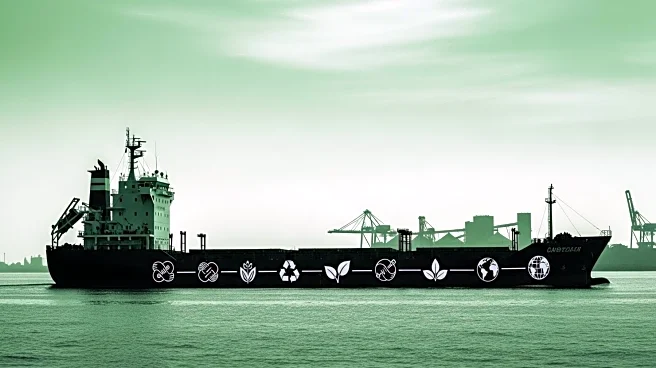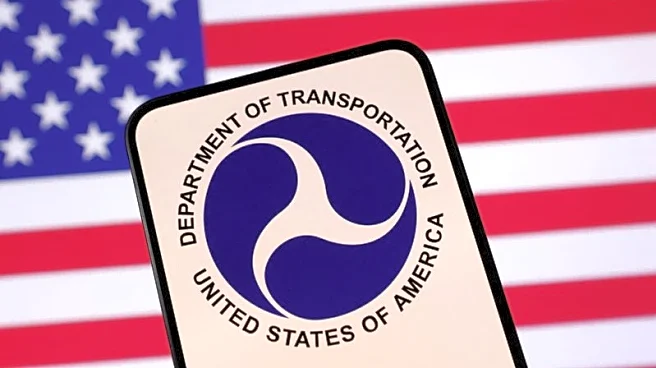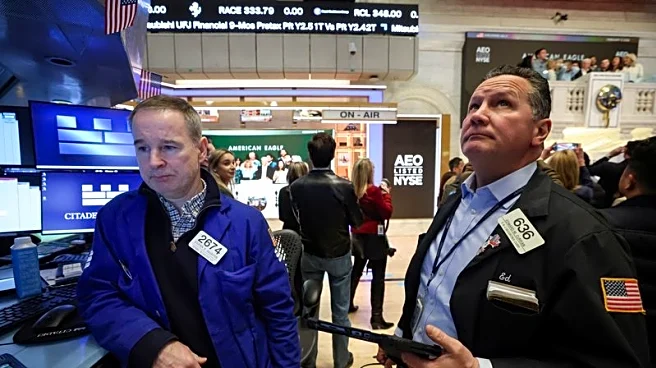What is the story about?
What's Happening?
Salzgitter Flachstahl and Oldendorff Carriers have entered into a long-term agreement aimed at reducing carbon emissions in the maritime transport of iron ore. Starting January 2026, Oldendorff will transport iron ore for Salzgitter from various loading ports to Hamburg using bulk carriers optimized for fuel efficiency. This collaboration is expected to reduce CO₂e emissions by at least 20%, equivalent to removing over 4,000 passenger cars from the road for a year. The initiative is part of Salzgitter's broader SALCOS® project, which focuses on decarbonizing the steel supply chain, including logistics and seaborne raw material transport.
Why It's Important?
The partnership between Oldendorff Carriers and Salzgitter Flachstahl represents a significant step in the maritime industry's efforts to reduce greenhouse gas emissions. By optimizing fuel consumption and reducing carbon intensity, the collaboration not only contributes to environmental sustainability but also offers cost savings for Salzgitter. This move aligns with global trends towards decarbonization and could set a precedent for other companies in the steel and shipping industries to follow suit, potentially leading to broader adoption of eco-friendly practices in maritime logistics.
What's Next?
The agreement is set to commence in January 2026, with Oldendorff implementing fuel-efficient practices across its fleet. As the partnership progresses, it may inspire similar collaborations in the industry, encouraging more companies to adopt sustainable practices. Stakeholders in the steel and shipping sectors will likely monitor the outcomes closely, assessing the impact on emissions and operational costs. The success of this initiative could influence policy decisions and industry standards related to carbon emissions in maritime transport.
Beyond the Headlines
This collaboration highlights the growing importance of sustainability in industrial supply chains. As companies increasingly prioritize environmental responsibility, partnerships like this could lead to long-term shifts in industry practices, promoting innovation in fuel-efficient technologies and sustainable logistics solutions. The focus on reducing Scope 1 and Scope 3 emissions underscores the need for comprehensive strategies that address emissions across the entire value chain.


















